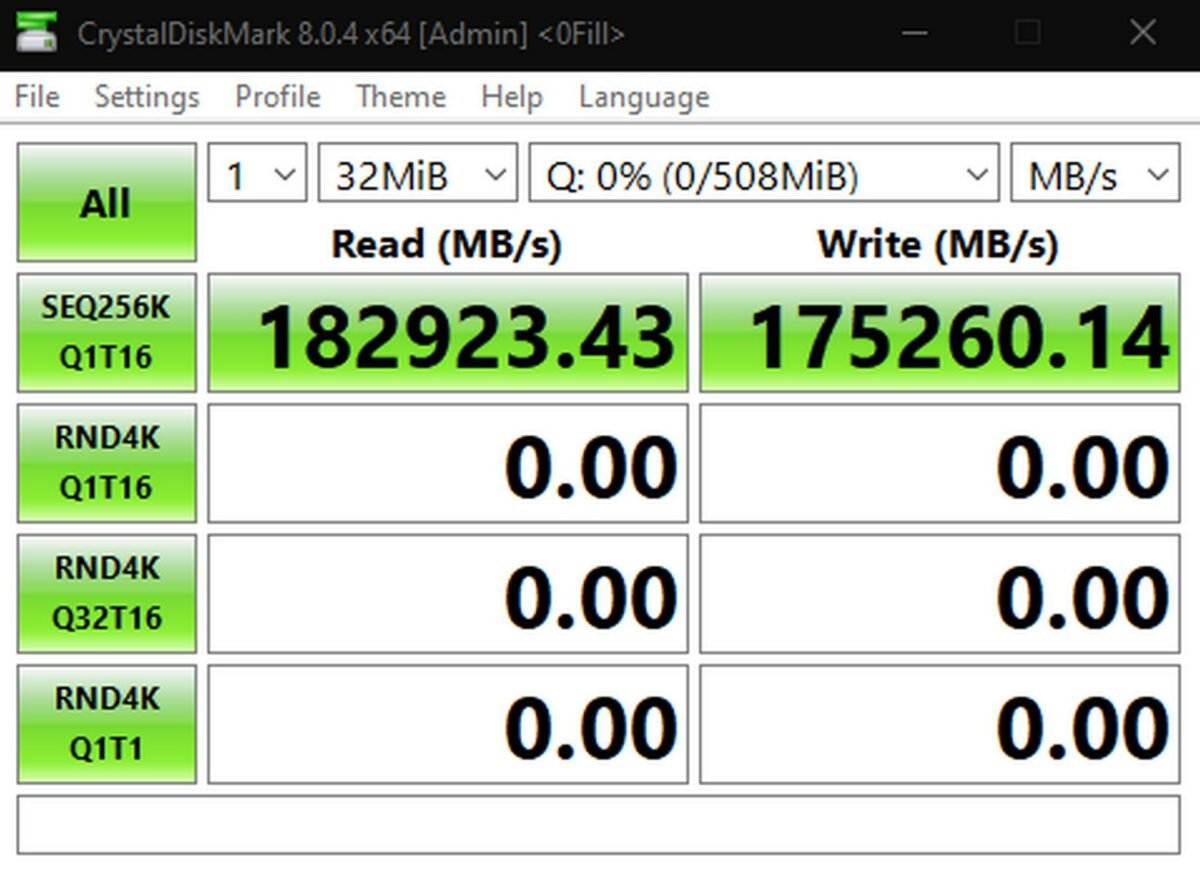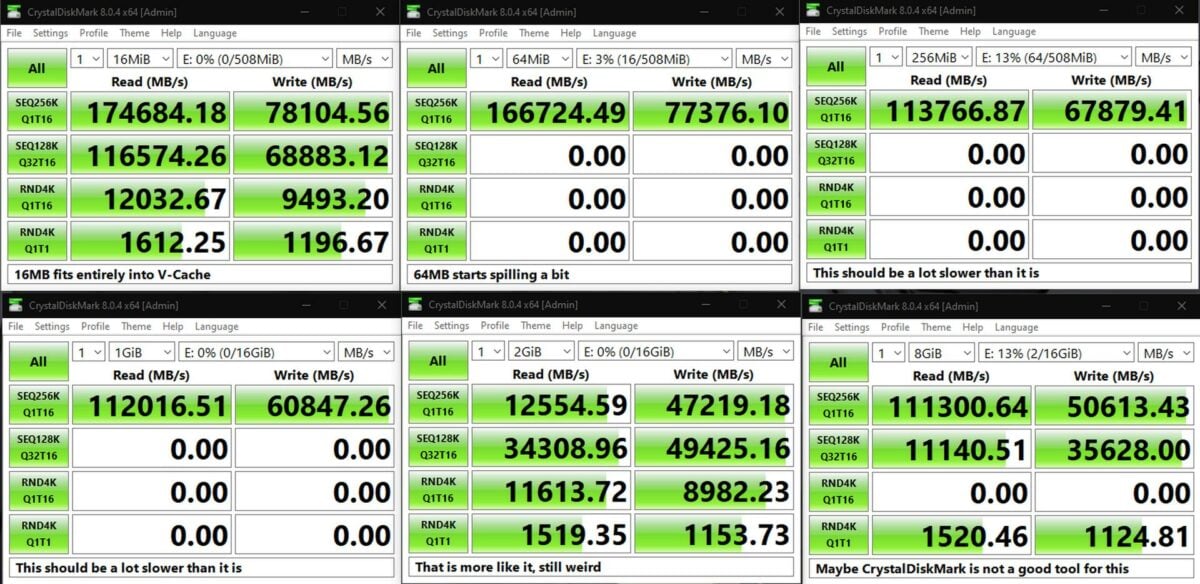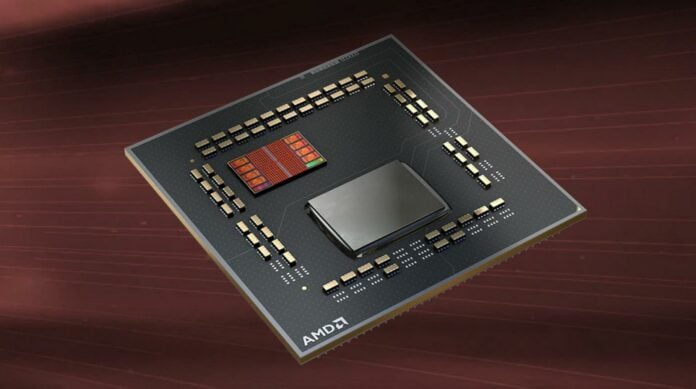Nemez on X (Twitter) has shared some impressive benchmark screenshots of a RAM Disk using AMD 3D V-Cache. Brace yourselves for some mind-boggling speeds dwarfing even the fastest storage devices you have ever seen.
For those unfamiliar with RAM Disks. The idea is to use system RAM, which is faster than traditional HDDs or even SSDs, as general-purpose storage. To do so, you simply need to install an app such as SoftPerfect RAM Disk or ImDisk. Say you have 64GB of DDR5 RAM, you can use 32GB as a RAM Disk to install games or software. If you’re lucky enough to have a Ryzen Threadripper 7980X CPU, you can even use up to 1TB of RAM. It’d be costly, sure, but much more space. The only issue with RAM Disks is that you lose all data after restarting the computer. There are workarounds to this limitation, but they’re pretty fiddly.

While you can expect around 18GB/s read and 25GB/s write or more from a DDR5 RAM Disk, using AMD’s 3D V-Cache netted Nemez a massive 182GB/s and 175GB/s, respectively. Just to get CrystalDiskMark working in the first place, Nemez had to use specific settings, such as installing OSFMount and creating a FAT32 RAM Disk. Then, they configured CrystalDiskMark to SEQ 256KB, Queue Depth 1, Threads 16, and fill to 0s instead of random. Finally, they ran small file tests to fit within the Ryzen 7 5800X3D’s 96MB of L3 cache.
Needless to say, this exercise is more for show than anything. Besides the disk size being smaller than any current SSD, general CPU performance has a huge chance of degrading due to cache misses. A cache miss happens when an application makes a request to retrieve data from the cache, but that specific data is not currently available. In this case, it needs to fetch the data from RAM, which is much slower, thus lowering system responsiveness.

Nemez continued investigating with different test parameters. The results never went below the 110GB/s read, even when tested with 8GB file sizes. CrystalDiskMark could be inadequate for this task. In any case, there’s no denying that cache is definitely faster than RAM, let alone SSDs.

